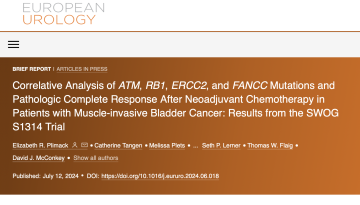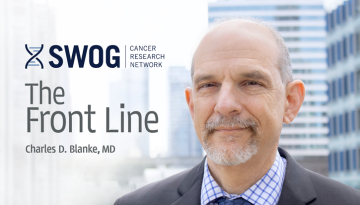SWOG Results Recast Rural-Urban Disparities
Long-standing wisdom is that deaths from cancer come more quickly in rural areas versus urban. Well, a new SWOG study suggests that is not true – if patients are in a clinical trial.
In work published in JAMA Network Open on August 17, SWOG biostatistician and health services researcher Dr. Joe Unger and his team performed a comparative effectiveness trial, mining SWOG data on 36,995 patients enrolled in 44 of our Phase II or III treatment studies. These patients had 17 different neoplasms and hailed from all 50 states. Results are big news. Independent of other patient variables, such as age, gender, and race, there were no meaningful differences in survival patterns between rural and urban patients for 16 of the 17 different cancer types.
In other words, enrollment in a clinical trial – and receipt of consistent, quality, evidence-based care that comes with trials – mitigates differences in survival rates between rural and urban patients.
The results are taking Twitter by storm, earning tweets and retweets by NCI Director Dr. Ned Sharpless and ASCO President Monica Bertagnolli, and ASCO Senior Vice President and Chief Medical Officer Rich Schilsky. Press coverage is also strong, with TV and radio stories as well as articles by the news services Reuters Health, United Press International, and HealthDay.
The work also earned an invited commentary by Lauren McCullough, PhD and Christopher Flowers, MD, from Emory University’s Winship Cancer Institute in Atlanta. In the Reuters story, Dr. Flowers said: "Most studies examining cancer care for patients from rural environments have found that patients in these settings have worse outcomes. In this scenario where all patients received protocol-driven cancer care, as provided in clinical trials, there were no differences in survival when comparing patients from rural and urban settings. This finding was surprising and stands in sharp distinction to the results of other studies."
To get the scoop yourself, read the press release, the article, and the editorial. And check out our Twitter feed to follow comments and conversation.
This new work is a testament to the high-caliber, guideline-driven cancer care provided in clinical trials. It also speaks well of novel use of existing trial data and support from The Hope Foundation. Finally, Unger’s piece highlights the power of the National Cancer Institute’s Community Oncology Research Program (NCORP). A key goal of NCORP is to bring NCI trials into community settings, including rural areas, and to close the gap in cancer care and outcomes for minority, rural, and other underserved Americans. Dr. Sharpless’ tweet on the trial consisted of one word: #NCORP.
We’re putting the finishing touches on our NCORP Research Base grant request, with our vision of SWOG-conducted NCORP clinical trials for the next six years. Joe’s work is an excellent example of innovation in this area, and next week, I’ll report in on that NCORP submission. More soon!
Other Recent Stories



